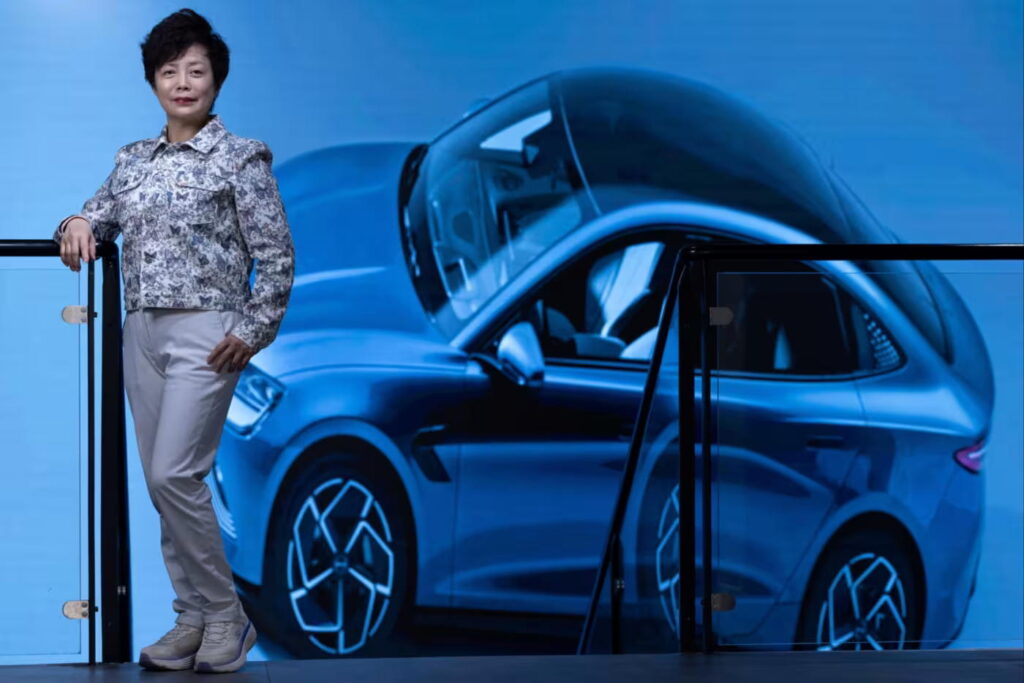“Tesla has partnered with Baidu [a Chinese search and AI group] but Baidu can’t disclose all the data points to Tesla,” Duo adds. “The real-world data is definitely more valuable.”
Home field advantage
While BYD might have home turf advantage when it comes to data collection and security, Wang’s late pivot to driverless functionality has created some risks for the group.
One is question marks over financial sustainability. Price wars among Chinese carmakers are putting margins and the industry’s balance sheet under strain as Beijing demands more action to protect suppliers in the world’s largest car market.
It has also opened up some rare gaps in BYD’s otherwise formidable vertical integration. Its market leadership has also enabled it to pressure suppliers for price cuts and extended payment terms, allowing it to rigorously control costs.
But according to Chris McNally, an analyst with US investment bank Evercore, the God’s Eye platform uses software and hardware partners, including Momenta, a Chinese group backed by General Motors in the US, and some chips from Nvidia.
BYD’s executive vice-president Stella Li said competition with Tesla in EVs and autonomous technology would accelerate innovation, ultimately making BYD a “better’” company. Credit: Joel Saget/AFP/Getty Images
For years, the risks associated with reliance on US-made chips in particular have hovered over the Chinese car sector—plans for driverless systems could be held back at any moment by US export controls or sanctions.
“Given the geopolitical environment, no one will invest in a technology with such a high risk that they’re still relying on foreign technology,” says Raymond Tsang, an automotive technology expert with Bain in Shanghai.
However, these vulnerabilities might not persist. Analysts believe BYD will soon develop most of its driverless systems in house and increasingly swap out Nvidia chips for those made by Beijing-based Horizon Robotics. “This is the BYD way to drive costs down,” McNally says.
It would also be consistent with a broader shift towards self-reliance in key technologies, in response to Washington’s steadily increasing restrictions on technology exports to China.
Yuqian Ding, a veteran Beijing-based auto analyst with HSBC, says that while BYD has not talked about developing a robotaxi service, executives have made “very clear” their plans to develop in-house all the important software and hardware needed for autonomous vehicles.
Wang, the BYD boss, has also previously indicated to analysts that the company has all the tech and know-how to develop robots, in another potential long-term challenge to Musk.
“With more than 5 million scale per annum, they can do everything,” Ding says, adding: “That’s the ultimate goal … Their target is much closer to Tesla.”
In an interview with the Financial Times this year, BYD’s executive vice-president Stella Li said competition with Tesla in EVs and autonomous technology would accelerate innovation, ultimately making BYD a “better” company.
“In the future, if you are not producing an electric car, if you’re not introducing technology in intelligence and autonomous driving, you will be out,” she warned.
Additional reporting by Gloria Li in Hong Kong
Graphic illustration by Ian Bott and data visualisation by Ray Douglas
© 2025 The Financial Times Ltd. All rights reserved Not to be redistributed, copied, or modified in any way.
